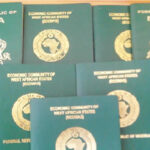
According to BBC, it expects the world economy to grow by just 1.7 per cent this year – a sharp decrease from the 3 per cent it predicted in June.
The report blames a number of factors stemming from Russia’s invasion of Ukraine and the impact of the pandemic.
The effects of higher interest rates are picked out as the key challenge for policymakers to overcome.
World Bank president David Malpass said the downturn would be “broad-based” and growth in people’s earnings in almost every part of the world was likely to “be slower than it was during the decade before Covid-19”.
The 1.7 per cent growth figure would be the lowest since 1991, with the exceptions of the recessions of 2009 and 2020, which were caused by the global financial crisis and the Covid pandemic.
The World Bank said the US, the Eurozone and China – the three most influential parts of the world for economic growth – were “all undergoing a period of pronounced weakness,” a downturn that was worsening the problems faced by poorer countries.
After surging 5.3 per cent in post-pandemic 2021, growth in the world’s richest economies is likely to slow sharply from 2.5 per cent in 2022 to just 0.5 per cent this year.
“Over the past two decades, slowdowns of this scale have foreshadowed a global recession,” the bank warned, adding that it anticipated “a sharp, long-lasting slowdown.”
If a global recession were to occur, it would be the first time since the 1930s that there have been two global recessions within the same decade.
Tackling rising prices
Higher inflation is one of the main reasons that the global economy is struggling. Global food and energy prices jumped last year as the war in Ukraine led to reduced crop supplies and pushed the West to move away from Russian fossil fuels.
Why are things so expensive? The BBC’s Faisal Islam answers your inflation questions in 90 seconds
The World Bank said it expected the global pace of price rises to slow from 7.6% in 2022 to 5.2 per cent this year, as those pressures ease.





